In a historic achievement, six Indian Americans have won seats in the U.S. House of Representatives, marking the highest representation of the Indian American community in Congress to date. This “Samosa Caucus,” as it’s informally known, now includes a new face—Suhas Subramanyam, who made history as the first Indian American elected to the House from Virginia and the entire East Coast. Subramanyam joins incumbents Ami Bera, Raja Krishnamoorthi, Ro Khanna, Pramila Jayapal, and Shri Thanedar, who were all re-elected, solidifying the presence and influence of Indian Americans on Capitol Hill.
Subramanyam’s Historic Win in Virginia
Suhas Subramanyam, a Virginia State Senator and former White House advisor under President Obama, has become the first Indian American elected to Congress from Virginia, defeating Republican Mike Clancy in a closely watched race. His election from Virginia’s 10th District is a significant milestone not only for Indian Americans but also for the East Coast, which had previously seen limited Indian American representation in national politics. “I am honored and humbled that the people of Virginia’s 10th District put their trust in me to take on the toughest fights and deliver results in Congress,” Subramanyam shared, reflecting on his journey and his deep commitment to the community he calls home.
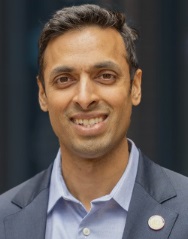
Subramanyam’s presence strengthens the “Samosa Caucus,” which now includes six Indian American lawmakers, demonstrating the growing influence and diversity of this community in U.S. politics. His addition is a notable achievement, as he joins other prominent figures who have become leaders on issues of healthcare, technology, and social justice.
The Six Indian American Representatives in the House
1. Ami Bera - Democrat, California’s 6th District
- Serving since 2013, Bera is the senior-most Indian American Congressman, known for his work in healthcare reform and foreign policy.
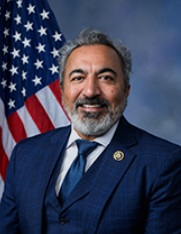
2. Raja Krishnamoorthi - Democrat, Illinois’ 8th District
- Reelected for a fifth consecutive term, Krishnamoorthi focuses on economic opportunity, immigrant rights, and education.
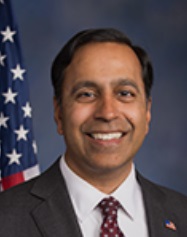
3. Ro Khanna - Democrat, California’s 17th District
- Representing Silicon Valley, Khanna has been a strong advocate for technology policy and income equality.

4. Pramila Jayapal - Democrat, Washington’s 7th District
- Jayapal, a progressive leader, emphasizes immigrant rights, social justice, and healthcare access.
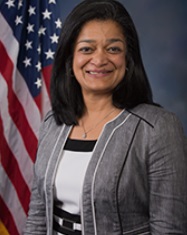
5. Shri Thanedar - Democrat, Michigan’s 13th District
- Reelected for a second term, Thanedar champions educational reform and economic equity in Michigan.
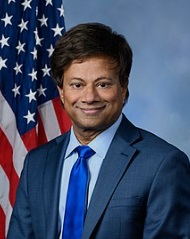
6. Suhas Subramanyam - Democrat, Virginia’s 10th District
- Subramanyam brings experience as a Virginia State Senator and White House advisor, focusing on economic growth and social justice.
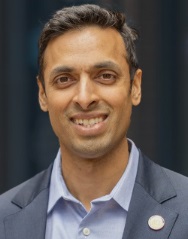
Democrat candidate Dr. Amish Shah’s loses to Republican David Schweikert in Arizona
Meanwhile, Republican David Schweikert wins, keeps House seat in Arizona's 1st Congressional District.
Republican Rep. David Schweikert has retained his Arizona congressional seat, overcoming a strong challenge from Democrat and former state Rep. Amish Shah.
Schweikert, who has represented the district since 2011, is known for his focus on fiscal policy and serves as vice chair of the Joint Economic Committee. Shah, a physician, centered his campaign on health care reform after emerging victorious from a competitive Democratic primary.
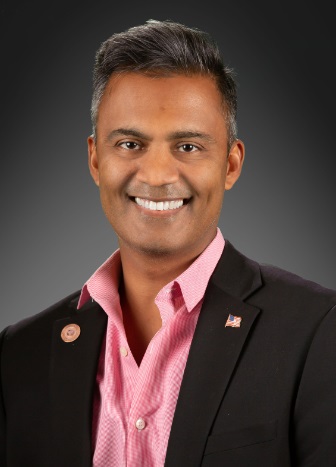
Dr. Shah, who has served as an emergency room physician for over two decades, was previously elected to the Arizona House of Representatives in 2017. Known for his dedication to healthcare reform, Shah’s campaign emphasizes affordable healthcare, transparency in prescription pricing, and access to quality medical services. His focus on healthcare is particularly relevant in Arizona, where he advocates for reducing costs of essential medications and protecting women’s healthcare rights. Shah’s campaign website outlines his stance against price-gouging by Big Pharma, showing his determination to ensure healthcare access and affordability.
Should he secure the seat, Shah would make history as the seventh Indian American in Congress, a remarkable achievement for a community that has seen exponential growth in political influence in recent years. His win would reinforce the power of diverse voices in American democracy and continue to inspire young Indian Americans aiming to enter public service.
Rep. Ranjeev Puri chosen as Minority Leader of Michigan State House
Rep. Ranjeev Puri (D-Canton) has been chosen as the minority leader of Michigan’s House for the 2025-2026 term following the Democrats' recent loss of the House majority in the state legislature. This change hands the chamber’s control back to the Republicans, with Rep. Matt Hall (R-Richland Township) set to serve as the majority leader starting January 8, 2025.
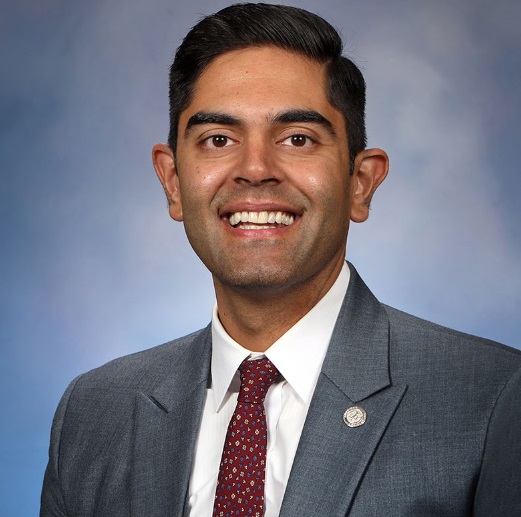
In his statement, Puri emphasized his commitment to advocating for the diverse communities represented by the House Democratic Caucus. He expressed a vision of unity within the caucus and a willingness to collaborate across party lines, aiming to lay the groundwork for reclaiming the majority in the future. Puri, currently serving as the House Majority Whip, was first elected in 2020 and has held roles such as chair of the Appropriations subcommittee on Transportation.
Impact of Indian American Representation
The increase in Indian American representatives reflects the community’s growing political engagement and the acceptance of diverse perspectives in U.S. politics. With six—potentially seven—Indian Americans in the House, this group continues to bring a distinct perspective on issues ranging from healthcare to economic policy, immigration, and civil rights. The Samosa Caucus, as an influential bloc, exemplifies how immigrant communities can rise to the highest levels of public office, advocate for their constituents, and shape the future of American democracy.

 1,245 Views
1,245 Views 0 comments
0 comments
Comments